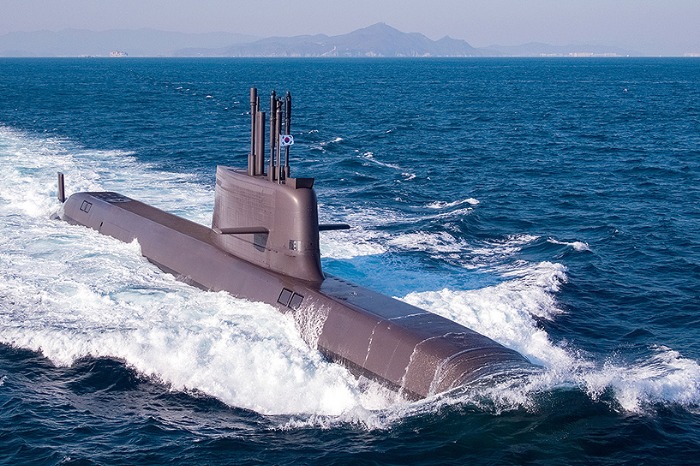UPDATE: In a groundbreaking move, Donald Trump has just approved South Korea’s request to build nuclear-powered submarines at the Hanwha Philly Shipyard in Philadelphia. This decision marks a significant shift in military capabilities for South Korea, enhancing its naval strength and strategic ties with the United States.
The announcement came on October 30, 2025, a day after the two nations finalized a trade and tariff agreement during the APEC leaders’ meeting in Gyeongju. Trump declared on Truth Social, “I have given them approval to build a Nuclear Powered Submarine, rather than the old fashioned, and far less nimble, diesel-powered submarines that they have now.”
This approval could transform South Korea into the world’s seventh operator of nuclear submarines, bolstering its defense capabilities amid rising tensions with North Korea and China. South Korean President Lee Jae Myung emphasized that nuclear-powered submarines would reduce the operational burden on the US Navy in regional waters, enhancing joint surveillance efforts.
Lee requested fuel for these submarines during meetings with Trump, stressing, “We are not proposing to build submarines armed with nuclear weapons. We want you to allow us to secure nuclear fuel for nuclear-powered submarines.” The construction will begin at Hanwha’s facility, marking a significant investment of approximately $1.5 billion per submarine.
The implications of this deal extend beyond military power. Analysts suggest it signals a shift in US policy, reflecting a desire for South Korea to take a more prominent maritime role in countering China’s influence in the Indo-Pacific region. A defense expert noted, “This could be a game-changer. A Korean nuclear sub fleet would significantly enhance allied undersea surveillance and deterrence capabilities.”
However, the decision is not without potential hurdles. There are concerns within the US government regarding nuclear non-proliferation risks and the precedent it might set for other allies. The approval signals a commitment to provide key nuclear technology and enriched uranium fuel, requiring amendments to existing bilateral agreements.
Hanwha Ocean, the shipbuilding company leading this initiative, has a storied history in submarine construction and is set to integrate its commercial shipbuilding capabilities with advanced defense technology. The Philadelphia yard, equipped for building various US Navy surface ships, is poised to become a central hub for this operation.
As the situation develops, the focus will be on securing the necessary nuclear fuel supply and US congressional backing. Trump’s rapid decision reflects his characteristic political style and strategic alignment with South Korea.
In response to this announcement, China has reiterated its stance on non-proliferation, urging South Korea and the US to adhere to their obligations. The geopolitical landscape is shifting, and the implications of South Korea’s nuclear ambitions will be closely watched in the coming months.
This historic development not only reshapes the military dynamics in East Asia but also holds the potential for economic growth through advanced shipbuilding exports, marking a new chapter for South Korea’s defense industry. Stay tuned for further updates as this story unfolds.






